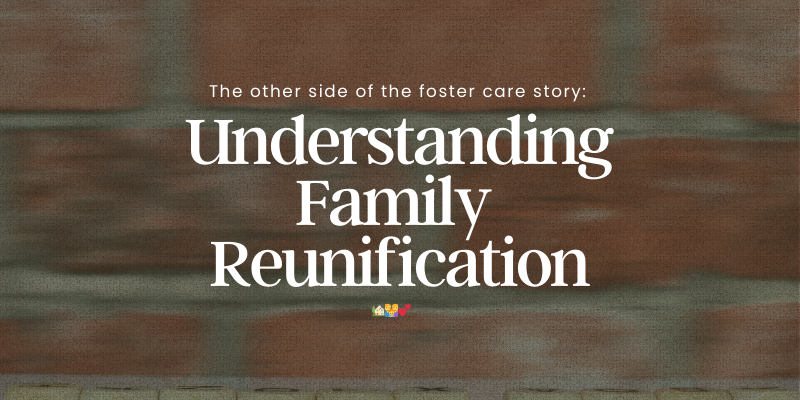The Joy and Complexity of Foster Care
In yesterday's post, I opened up about the life-altering joy of adopting Braxton through foster care. While that chapter of our lives has been nothing short of magical, it's crucial to present a balanced view. Today, let's delve into the primary goal of foster care: family reunification.
The Lens of Privilege
Before the universe threw me its curveballs, my life was relatively trauma-free. I'm not saying this to brag but to acknowledge my privilege. This privilege initially made me somewhat naive, especially when I stepped into the world of foster care. Surrounded by people who shared similar financial stability and life experiences, it was easy to pass judgment on biological parents struggling to regain custody of their children.Life's Reality Check
But life has a way of humbling us, doesn't it? My own journey through loss and trauma has granted me a new lens—one that's more empathetic to the hurdles many biological parents face. Whether it's battling addiction, financial woes, or other life challenges, these obstacles can make parenting an uphill battle.
Generational Trauma: The Unseen Factor
Here's where we need to talk about generational trauma—an often overlooked but critical aspect of the foster care discussion. Many biological parents aren't "choosing" addiction over their kids or "neglecting" them. They're often caught in a cycle of trauma that's been passed down through generations. This trauma manifests in various ways, from substance abuse to mental health struggles, making parenting even more challenging.
Breaking the Cycle
Understanding generational trauma isn't about making excuses; it's about addressing the root causes of family separation. We need to look beyond the symptoms and focus on systemic issues. This could mean advocating for better mental health services, addiction treatment, and educational programs aimed at breaking the cycle of trauma and enabling family reunification.
Advocacy: A Two-Way Street
As we celebrate adoption stories, let's also extend our compassion and understanding to the biological parents navigating the foster care system. Acknowledging the role of generational trauma makes us better advocates—not just for the kids in need of homes but also for their families striving to overcome deeply ingrained challenges.
The Ultimate Goal: Family Reunification
Remember, the primary aim of foster care is to offer temporary support with the ultimate goal of reuniting families whenever it's safe and possible. Just because you or I might disagree with a parent's lifestyle doesn't mean we have the right to separate a family.
Final Thoughts
As we revel in the heartwarming stories of adoption this month, let's also honor the complex, often painful journeys of biological parents in the foster care system. Their stories matter, too, and recognizing this complexity makes us better advocates for all children involved.
So, let's keep the conversation going. Please share your thoughts and experiences, and let's continue to advocate for a more compassionate and comprehensive foster care system.

.png)










No comments:
Post a Comment